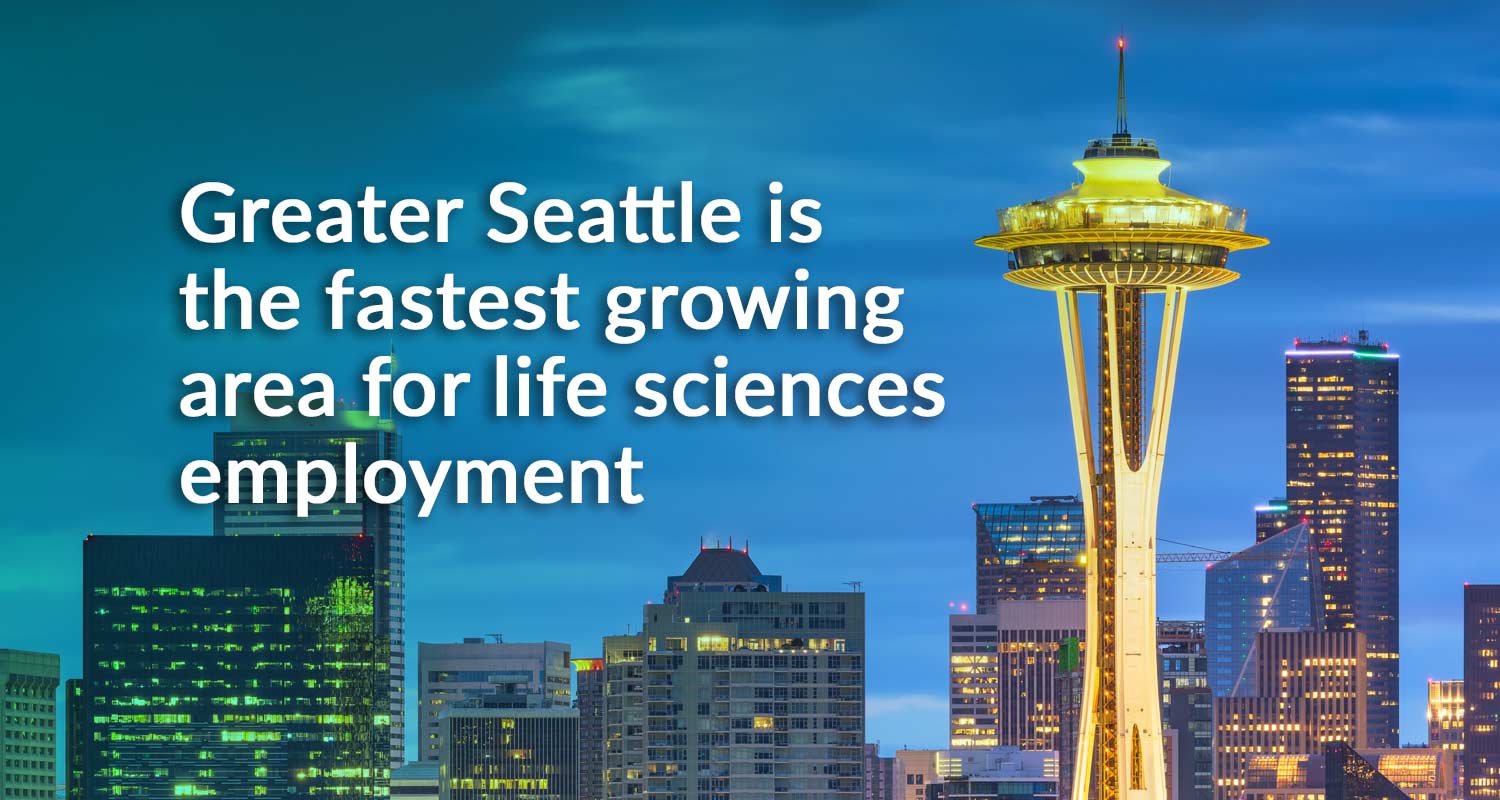The Pacific Northwest is home to beautiful Seattle, Washington. Anchored by companies such as Starbuck’s Coffee, Pike’s Place Market and the iconic Space Needle, it is a must-see destination in the U.S. It is also a growing biotech hub. With the prestigious Fred Hutchinson Cancer Center, Seattle Children’s and the University of WA incubating technologies, the list of innovative biotech companies continues to grow.
The Seattle-Tacoma-Bellevue triangle is the fastest growing area for life sciences employment, closely followed by the Atlanta area and the Orlando-Kissimmee-Sanford triangle, according to a new report from JLL. (EndPoint News, March, 2021).
Here are a few interesting and innovative companies to watch:
Chinook Therapeutics, Seattle, is a clinical-stage biopharmaceutical company discovering, developing and commercializing precision medicines for rare, severe chronic kidney diseases. This includes IgA nephropathy (IgAN), other proteinuric glomerular diseases and hyperoxalurias.
Blaze Biosicence, Seattle, has developed the first Tumor Paint product candidate, BLZ-100, for cancer surgery in multiple solid tumor types. BLZ-100 is a drug administered by IV injection that circulates within the body and “lights up” cancer cells. It consists of a peptide, which binds and internalizes into cancer cells, and a fluorescent dye, which emits light in the near-infrared range.
Sana Biotechnology, Seattle, imagines a world in which it is possible to cure genetically inherited diseases and modify genes to create better therapeutics for acquired diseases. Sana’s in vivo Cell Engineering platform aims to provide solutions for patients that current gene therapies cannot address. Success will require creative science, experienced product and clinical development strategies, and aggregating important technologies.
Icosovax, Seattle, is using novel Virus-like Particles (VLPs) to enable high-density, multivalent display of antigens in a manner that closely resembles viruses. This induces stronger and more durable immunological responses compared to traditional soluble antigens. VLPs contain no genetic material, so they are non-infectious and can provide a safer alternative to live-attenuated or inactivated vaccines.
Mozart Therapeutics, Seattle, is developing CD8 T cell immune modulators for the treatment of autoimmune diseases. It specifically targets a subset of T lymphocytes, delaying the onset and ameliorate targeted autoimmune diseases, enabling patients to get modern ways for treatment.
Athira Pharma, Bothell, is focused on improving neuronal health by promoting natural repair systems for Neurodegenerative diseases – like Alzheimer’s and Parkinson’s. Their therapeutic approach involves small molecule treatments designed to work by targeting specific, naturally occurring repair mechanisms. One of our initial targets is HGF/MET, a critical repair pathway we are seeking to promote with our lead therapeutic candidate, ATH-1017. Boosting this pathway can help improve brain health and function.
